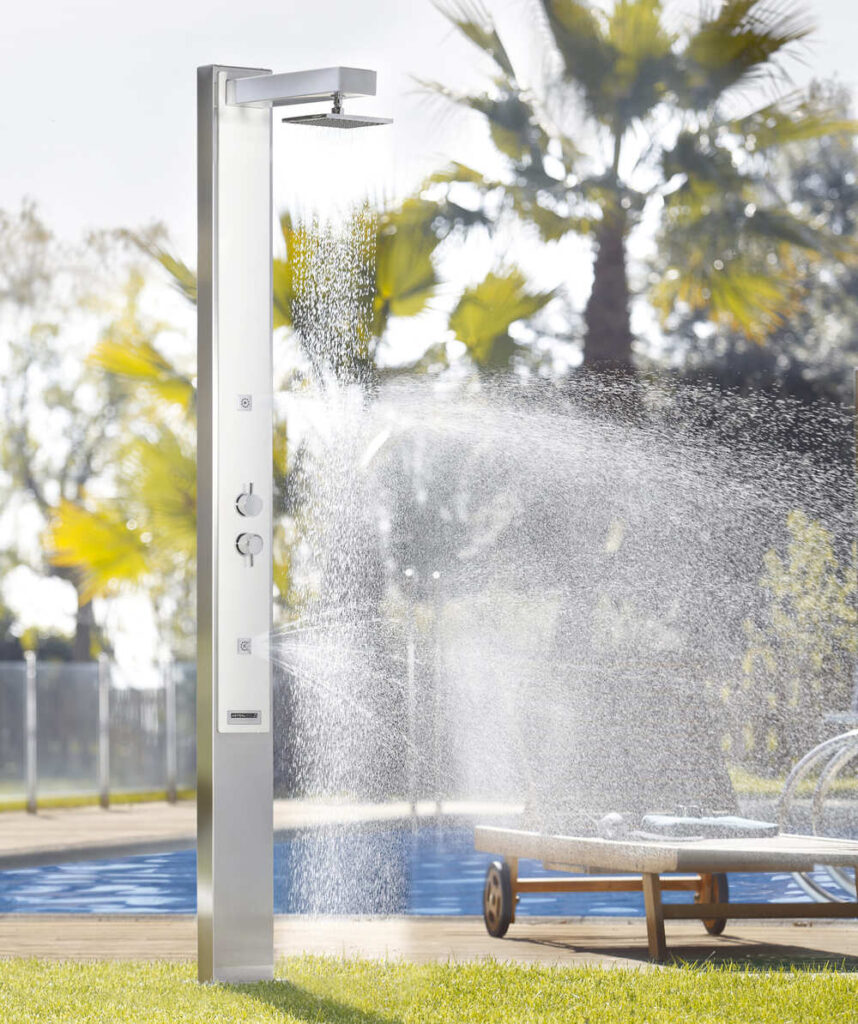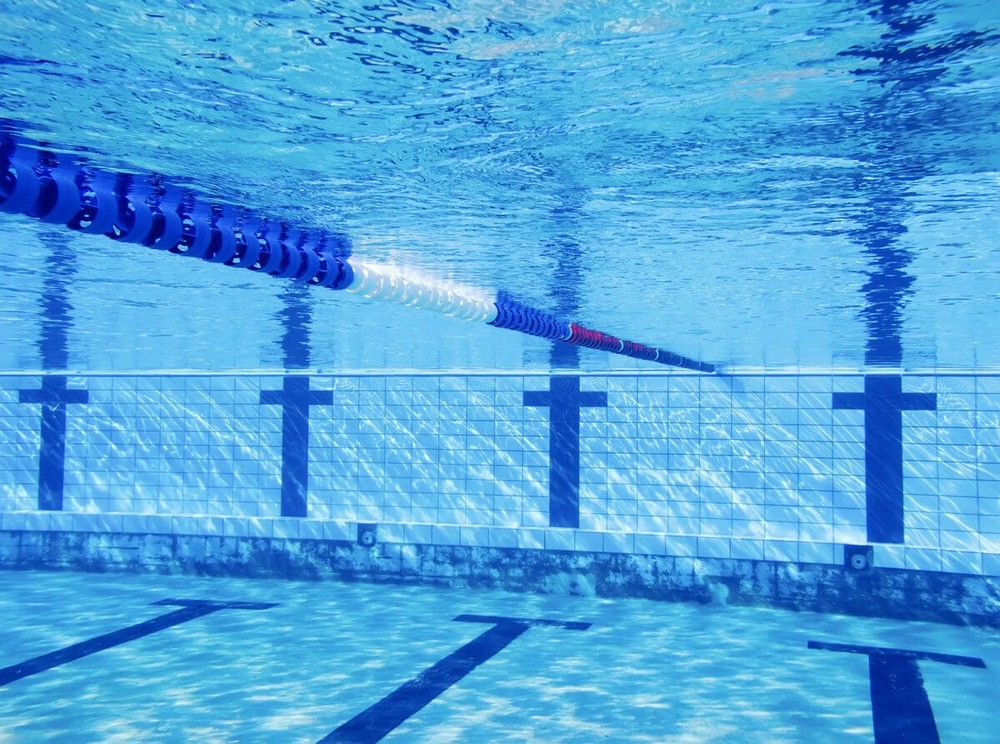Water recycling systems for swimming pools emerge at a time when growing environmental concerns and rising water costs are encouraging pool operators to seek innovative ways to minimize water waste.
Traditionally, swimming pools require frequent water refilling to avoid contamination, chemical imbalances, and evaporation losses. This, in practice, means thousands of gallons of water are wasted annually.
However, modern water recycling systems have emerged that avoid such scenarios, allowing for cutting down water usage, reducing reliance on freshwater sources, and improving overall pool maintenance. Let’s explore the options in detail.
Dive deeper with the eBook
5 key elements for building efficient and sustainable water recycling systems for swimming pools
Water recycling systems for swimming pools refer to a set of technologies designed to treat pool water so that it can be reused. However, the concept also encompasses the available alternatives to access and treat water sources other than freshwater resources, with the aim of reducing overall water consumption in a swimming pool.
Within this general framework, the following include some of the key options to deploy effective water recycling systems options and optimize water usage:
1. Efficient filtration systems
Advanced filtration systems are in charge of removing contaminants, salts, and organic matter from pool water, a first step to make it reusable.
These systems are particularly beneficial for pools in regions with hard water or high salinity levels in water. An example of such advanced systems are regenerative filters, which efficiently trap debris particles while reducing the need of backwashing water, as they regenerate filter media through a vibration system.
Their benefits are many: starting with reducing the need for frequent refilling, they also are capable of removing dissolved solids and impurities in water and, ultimately, extending the lifespan of pool water.
2. UV disinfection systems
Ultraviolet (UV) light water treatment systems represent cutting-edge systems for pool water disinfection that avoid the excessive use of chemicals. Through the use of UV light, these systems help break down bacteria, algae, and organic waste, ensuring cleaner water that can be reused multiple times.
As such, they are capable of successfully eliminating harmful pathogens, all while avoiding the use of chlorine and chemicals employed in conventional water treatment systems.
3. Backwashing filter systems
These represent an added layer of filtration required for setting up effective water recycling systems. What prompts their need is that conventional pool filters require periodic backwashing to remove accumulated debris. While water is used for this purpose, there are two key options to reduce waste in this process:
Have systems in place to further treat and reuse water used for cleaning for other purposes
- Use filters that employ air instead of water to backwash the filter media
Ultimately, the goal is to reduce water waste in filter cleaning processes, all while guaranteeing pool water balance at all times.

4. Rainwater harvesting for pool refilling
Rainwater is naturally soft and free from harsh minerals, making it a great alternative for pool refilling. As such, rainwater collection systems act as an auxiliary option for water supply. This is key, as it allows operators to reduce dependence on municipal water sources, lowering water bills and ultimately promoting an eco-friendly and sustainable pool business.
5. Greywater recycling for pool maintenance
Another key addition for sustainable water recycling systems is greywater recycling. This is water collected from showers, sinks, and other non-toilet plumbing fixtures, and then treated to be reused for pool maintenance and other cleaning tasks (from deck washing, to changing rooms cleaning or irrigation of outdoor areas).
A measure aligned with today’s green construction certifications and a firm step towards developing more efficient and sustainable facilities.
Advantages of water recycling systems for pool operators
Water conservation is at the center of water recycling systems. A key advantage that then cascades into a number of additional benefits:
Cost savings, as reduced water consumption translates into lower utility bills and operational costs.
More sustainable facilities, with water recycling systems being a key element to meet environmental regulations as well as sustainability goals.
Better water quality through advanced filtration and purification systems, so that overall pool hygiene and safety are improved.
Extended equipment lifespan, as clean and treated water prevents issues such as scaling and corrosion in pool equipment.

FAQs about water recycling systems
What is a water recycling system?
Generally speaking, a water recycling system comprises all infrastructure that aims at treating and reusing water.
The concept of water recycling systems encompasses a wide variety of options: from greywater treatment (recycling wastewater from baths, sinks or washing machines), to blackwater systems (treating sewage water) or rainwater harvesting systems, just to name a few. In this article, we’ve covered the technologies aimed at recycling water from swimming pools.
However, at the heart of every water recycling system is the same goal: to avoid water waste and reduce demand on freshwater supplies in order to minimize the environmental impact of whatever structure the system is part of.
How to reuse swimming pool water?
Swimming pool water can be reused through the use of the technologies that, when put together as part of swimming pool equipment, account for holistic water recycling systems.
At a glance, these include:
- Efficient filtration systems and UV-disinfection to get water ready for reuse
- Options for reducing water use in backwashing operations
- A variety of alternatives to have access to minimize freshwater consumption through additional, recycled sources of water: from rainwater collection to greywater recycling options
Above in this article you can find a description of each of these in detail.
Water recycling system: when every drop counts
Investing in water recycling systems is a smart choice for swimming pool operators looking to enhance their facilities’ efficiency and sustainability. By adopting these innovative solutions, pools can significantly reduce their environmental footprint while also maintaining pristine water quality.
As such, water recycling systems stand as key pieces in the puzzle for building a more sustainable pool industry, thanks to innovative water treatment systems and adopting water reuse measures. A prime example is Fluidra’s success story in Portugal, illustrating current cutting-edge water reuse practices with the development of a drinking water treatment plant (DWTP) and a wastewater treatment and recycling plant in the Zmar Eco Camping Resort, Portugal’s first ever eco-campsite.
If you’re looking to integrate any water recycling systems for your pool, consulting with Fluidra’s experts in aquatic solutions can help you find the most efficient and cost-effective option tailored to your needs.
